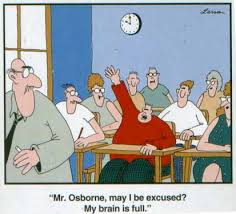“Knowing how to think empowers you far beyond those who only know what to think.”
—Physicist Neil DeGrasse Tyson
How do We Get Smarter About Nutrition?
Food, what to eat, calories, carbs, fat, proteins, eicosapentaenoic and docosahexaenoic acids…today’s nutrition landscape is vast, confusing, and sometimes just flat-out wrong. It can easily make us feel overwhelmed and dumb.
You’re definitely not dumb. (I know because you’re reading this great article)
But maybe you are unsure about the qualities of what it means to be intelligent about nutrition.
The Realities of Intelligence
According to the most current psychology and brain research here are the truths about intelligence.
- Intelligence is composite – it is made up of a bunch of different abilities that have to work together.
- Intelligence is expandable/buildable – we can “grow” our intelligence. Having a “growth mindset”, which holds that abilities are developed from what we value, seek out, and are willing to work on is far more beneficial than the “fixed mindset” that holds that talent is natural and that we are born with a certain amount, which is unchanged throughout life…read, “Yes, you can improve your nutrition!”
- Intelligence is practical – it emerges from experience and hands-on interaction. Make mistakes. Try stuff on.
- Intelligence is intuitive – the more experience we get the smarter we become.
- Intelligence is distributed – there’s no single “nutrition intelligence spot” in your brain. Your brain integrates a whole variety of inputs and abilities into a harmonious whole.
- Intelligence is social – great achievements come from collaboration and cooperation.
- Intelligence is strategic – intelligence isn’t just floating around out there. It has a purpose. Just like you and your nutrition.
- Intelligence is ethical – intelligence is driven by our values and principles. And “ethical intelligence” helps us know the right course of action.
Habits of Mind
So we now have an understanding of intelligence. Let’s get a simple way of building it into your daily life…aka, intelligence as a habit.
Whether you are a devout Paleo-ite or a sometime follower of the Specific Carbohydrate Diet (SCD) you can benefit by incorporating one of the below habits into your daily nutritional life.
The Habits of Mind are 16 problem-solving, critical-thinking skills that help people operate effectively, reason strategically, gain insight, persevere, build mastery, and be creative.
- Persist.
Stick to the task at hand; Follow through to completion. Stay focused. - Manage impulsivity.
Take time to consider options. Think before speaking or acting. Stay calm when stressed or
challenged. Be thoughtful and considerate of others. Proceed carefully. - Listen with understanding and empathy.
Pay attention to and do not dismiss another person’s thoughts, feeling and ideas. Put yourself in
the the other person’s shoes. Share your stories when you can relate to others’ experiences. At
the same time, hold thoughts at a distance in order to respect another person’s point of view
and feelings. - Think flexibly.
Try other perspectives. Consider the input of others. Generate alternatives. Weigh options. - Think about thinking (metacognition).
Be aware of your own thoughts, feelings, intentions and actions. Understand that what you do
and say affects others. Consider the impact of choices on yourself and others. - Strive for accuracy.
Check for errors. Measure at least twice. Nurture a desire for exactness, fidelity, artistry, &
mastery. - Question.
Ask yourself, “How do I know this?” Have a questioning attitude. Consider what information is
needed and choose strategies to get that information. Consider the obstacles needed to resolve. - Apply past knowledge to new situations.
Use what is learned. Consider prior knowledge and experience. Apply knowledge beyond the
situation in which it was learned. - Think and communicate with clarity and precision.
Try to be clear when you speak and write. Try to be accurate to when speaking and writing. Avoid
generalizations, distortions, minimizations and deletions when speaking and writing. - Gather data through all senses.
Watch. Listen. Smell. Taste. Feel. - Create, imagine, innovate.
Think about how something might be done differently from the “norm”. Propose new ideas. Strive
for originality. Consider novel suggestions others might make. - Respond with wonderment and awe.
Be intrigued by the world’s beauty, nature’s power, and the vastness of the universe. Respect and
notice what is awe-inspiring. Be open to the little and big surprises in life, in others and yourself. - Take responsible risks.
Be willing to try something new and different. Consider doing things that are safe and sane even
though new to you. Face the fear of making mistakes or of coming up short; don’t let that fear
stop you. - Find humor.
Laugh appropriately. Look for the whimsical, absurd, ironic and unexpected in life. Laugh
especially at yourself, when you can. - Think interdependently.
Look at knowledge production as a collective project that benefits from sharing and diverse
viewpoints. Work with others and welcome their input and perspective. Abide by decisions the
work group makes even if you disagree somewhat. Learn from others in reciprocal situations. - Stay open to lifelong learning.
Seek new experiences from which to learn. Be humble enough to admit when you don’t know
something. Be curious. Welcome new information on all subjects.
(Arthur L. Costa and Bena Kallick. “16 Habits of Mind.”)
The big take-away from this post…Pick just one of these habits and add it to your daily approach to nutrition?
See what happens.
See if you feel smarter about food.
See how this helps you improve your nutrition.



